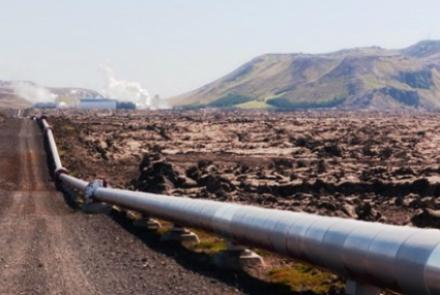The Natural Resources Monitoring Network (NRMN) on Wednesday raised concerns over growing insecurity threats around Turkmenistan-Afghanistan-Pakistan-India (TAPI) gas pipeline project.
NRMN says that there will be serious challenges ahead of the implementation of TAPI if the ongoing security issues around the project are not tackled.
NRMN says the current situation in Farah city indicates that government does not have the will to take serious security measures to ensure the security of the multinational project.
Meanwhile, the Ministry of Interior (MoI) and the Ministry of Defense (MoD) have said government has outlined a comprehensive security plan to ensure security of the project.
“Enemies of Afghanistan have always tried to hinder the way for the implementation of this project, but we are committed to providing security to this project,” said MoI spokesman Najib Danish.
Based on the timetable, only one and half years is left to complete construction of the project, but the implementation phase of the project has not yet started.
“Recently there have been indications that the government is step by step excluding TAPI from its priorities, because recent efforts to take over Farah shows that government has not done anything to ensure the security of TAPi gas pipeline,” said NRMN chief Ibrahim Jaffari.
After years of waiting, work finally started on the Turkmenistan-Afghanistan-Pakistan-India pipeline project in April following a ground-breaking ceremony in Herat to mark the occasion.
The TAPI Project
The Turkmenistan-Afghanistan-Pakistan-India (TAPI) pipeline project was agreed to by leaders of four countries a few years ago. The work on the Turkmenistan section of the project was completed earlier this year.
The 1,814-kilometer gas pipeline will pass through Afghanistan to Pakistan and India. At least 816 kilometers of the pipeline will pass through the territory of Afghanistan.
The pipeline passes through Herat, Farah, Nimroz, Helmand and Kandahar provinces of Afghanistan.
In Afghanistan, the TAPI pipeline will be constructed alongside the Kandahar–Herat Highway in western Afghanistan, and then via Quetta and Multan in Pakistan.
The final destination of the pipeline will be the Indian town of Fazilka, near its border with Pakistan.
The project will cost $22.5 billion USD.
The project will be completed by 2019, according to President Ashraf Ghani’s Office.
The project is implemented by the TAPI Limited Company – a group of firms from Afghanistan and Turkmenistan including Afghan Gas Enterprise, Turkmen Gas State Company, and two private companies from Afghanistan.
Afghanistan’s Share From TAPI
Afghanistan is expected to earn more than $400 million USD in transit duties annually from the project.
According to President Ghani’s Office, the project will create thousands of job opportunities for Afghans.
Afghanistan will annually get 500 million cubic meters of gas from the project in the first ten years. The amount will increase to one billion cubic meters of gas in the following ten years and 1.5 billion cubic meters of gas in the third 10 years after the completion of the project.


